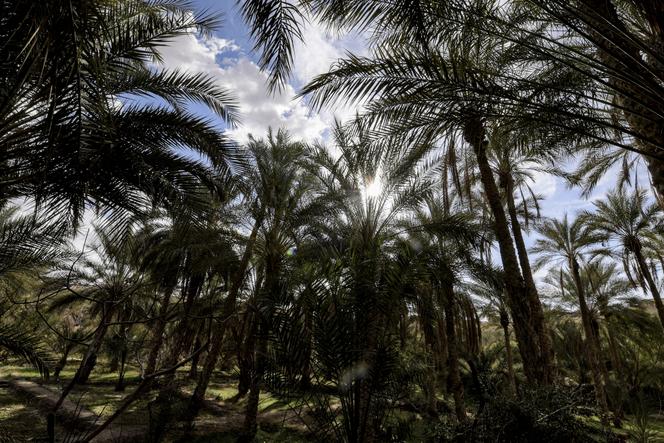


Sitting on a tree trunk at the entrance to the Nefta oasis, Alpha Oumar and Ibrahima consider themselves lucky. The two young men, originally from Guinea, have survived the hell of the Tunisian-Algerian border. Hunted by the authorities of both countries, they endured weeks of violence and humiliation before finding a makeshift shelter in the shade of palm trees, thanks to a handful of volunteers.
Like them, hundreds of migrants from Guinea, Gambia, Sudan, Somalia, Ethiopia and Côte d'Ivoire – including pregnant women and young children – managed to reach the many oases surrounding the small town of Nefta, located in south-western Tunisia, 40 kilometers from the Hazoua border post.
Although the authorities often turn a blind eye as long as they keep a low profile, migrants cannot move around freely in the city and are not accepted on public transport without a pass. "There are more and more of them, and it's dangerous, especially for women and children," said Assewer, one of the volunteers on site.
Ibrahima was still a child when he left his native country at the beginning of the year. By car and on foot, he passed through Côte d'Ivoire, Mali and Algeria before reaching the Tunisian-Algerian border in May. From there, he went directly to Sfax, the Tunisian port that has become the epicenter of Mediterranean migration. Every day, hundreds of people attempt the crossing to the Italian island of Lampedusa, the main gateway to the European Union. Ibrahima wants to be part of it.
In Sfax, the young man had no trouble finding shared accommodation in the city center. There, he met a compatriot Alpha Oumar, 23, who had arrived in the port city eight months earlier. He had already attempted to cross in December 2022, but his boat's engine failed some 10 kilometers from Lampedusa. Drifting for four days, the boat was finally rescued by Tunisian fishermen.
Brought back to Sfax, the young man watched helplessly as anti-migrant sentiment rose in Tunisia. In February, a racist campaign swept the country after President Kais Saied accused "hordes" of "illegal immigrants" of being the source of "violence, crime and unacceptable acts," claiming the existence of a "criminal enterprise hatched at the dawn of this century to change the demographic composition of Tunisia." In a hurry to leave Sfax, Ibrahima and Alpha Oumar tried to leave in June, but were caught at sea by the Tunisian National Guard.
On the night of July 3 to 4, the death of a young Tunisian man, stabbed by migrants according to the initial investigation, triggered a manhunt against sub-Saharan Africans, hundreds of whom had been expelled from their homes and subjected to violence. The following night, police officers arrived at Alpha Oumar and Ibrahima's home. They "broke down the door and asked us to leave, telling us they were there to make us feel safe," said the older of the two.
You have 59% of this article left to read. The rest is for subscribers only.
